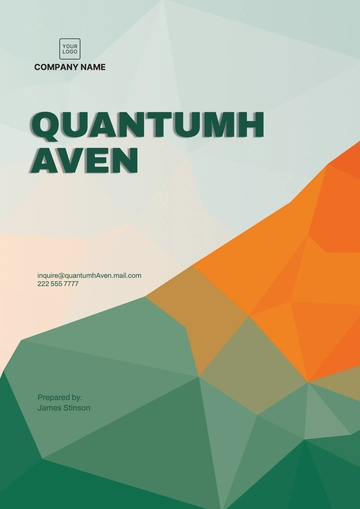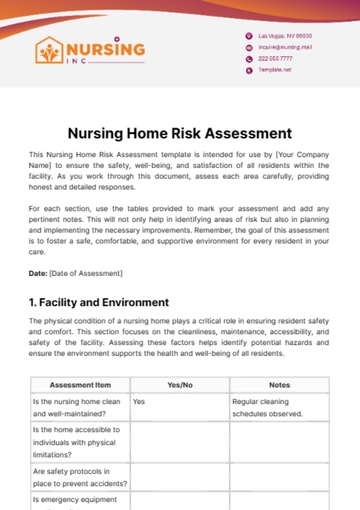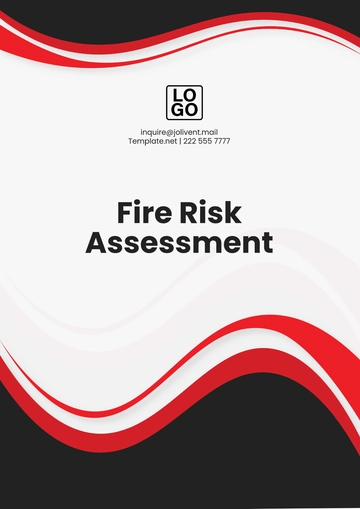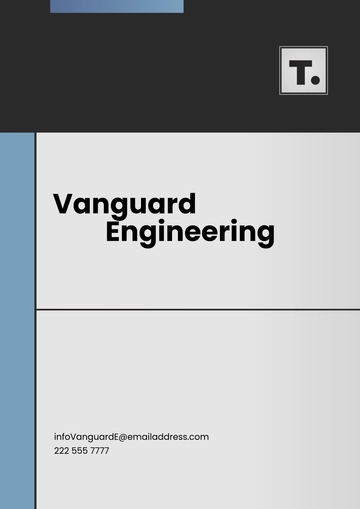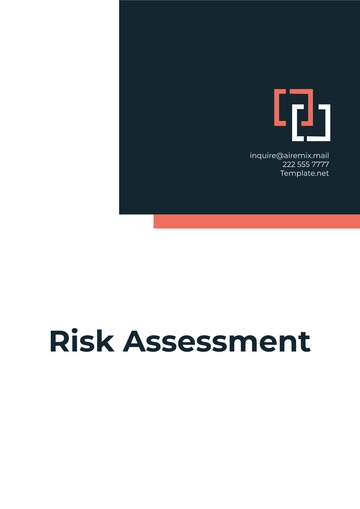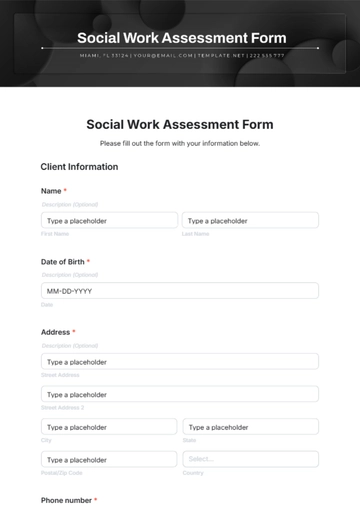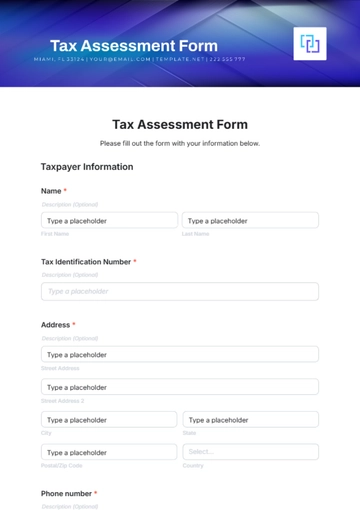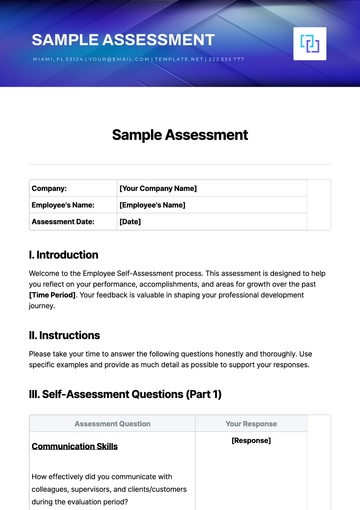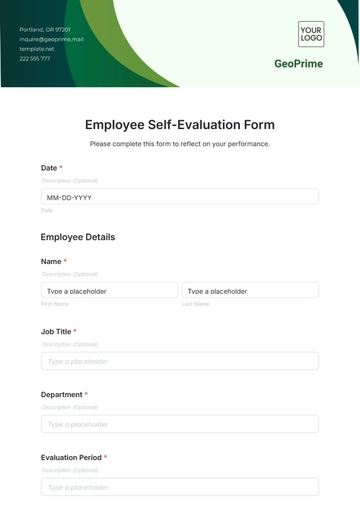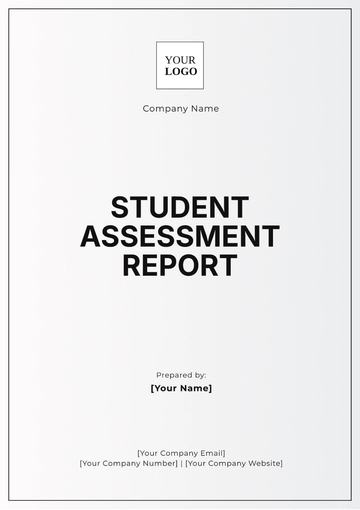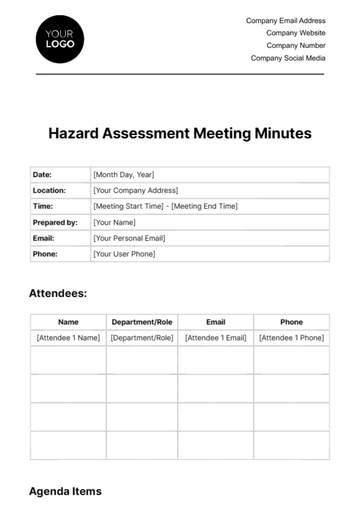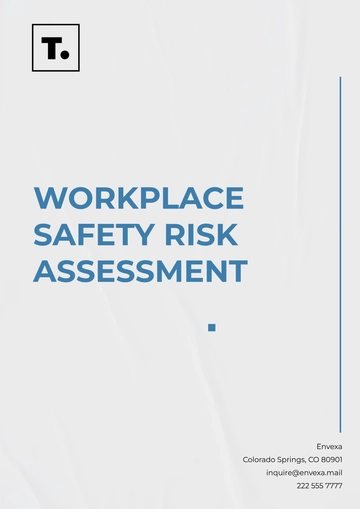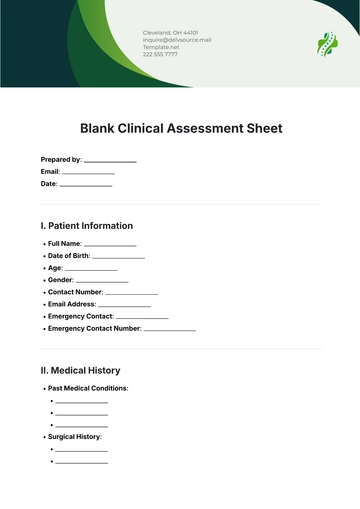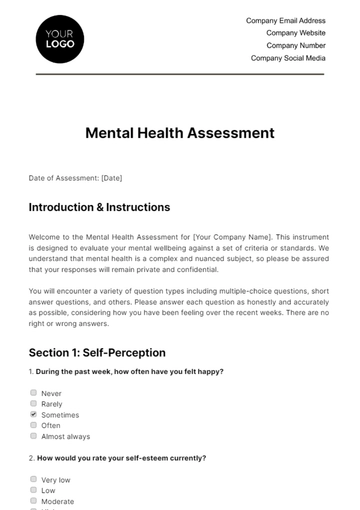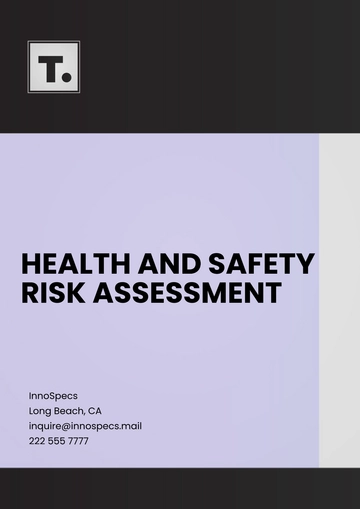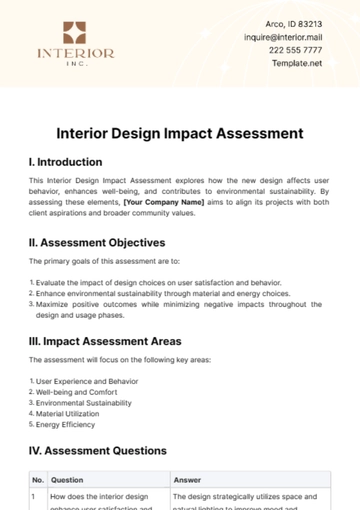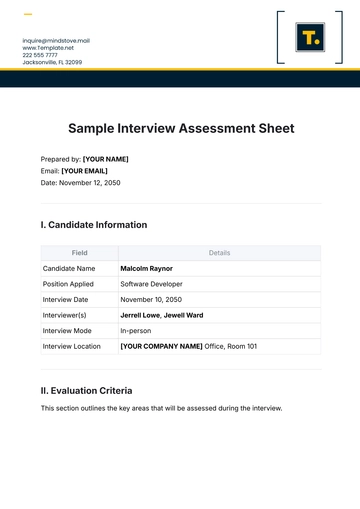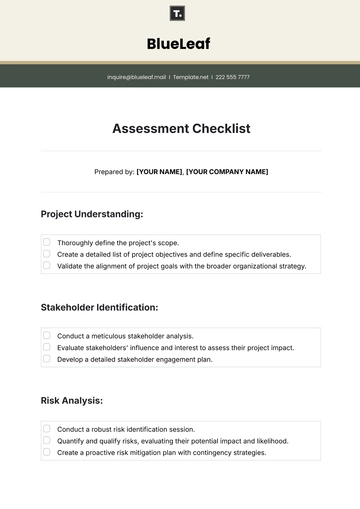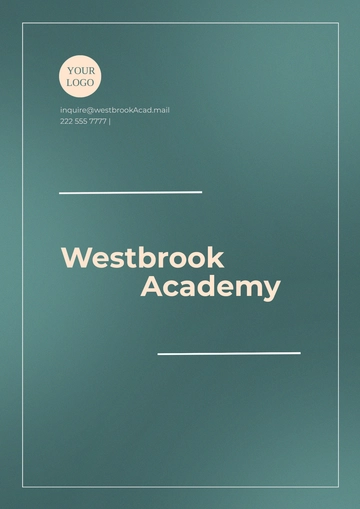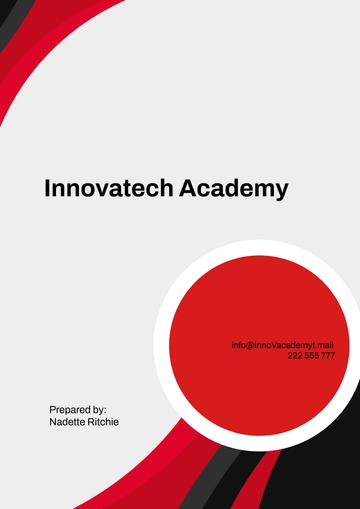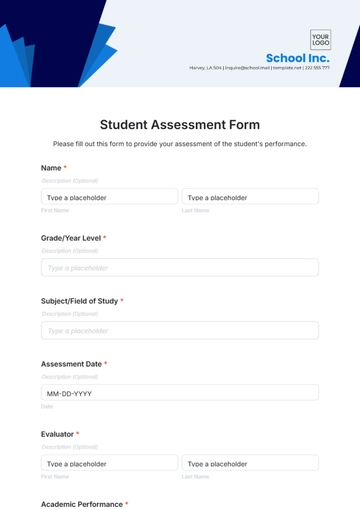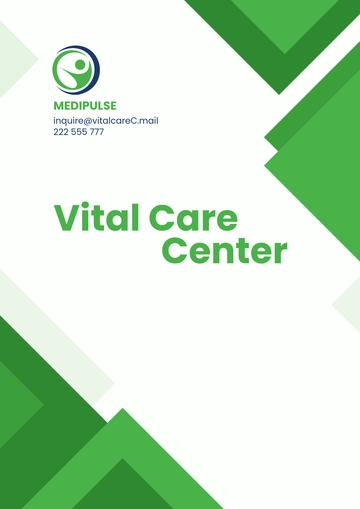Free School Function Assessment Report
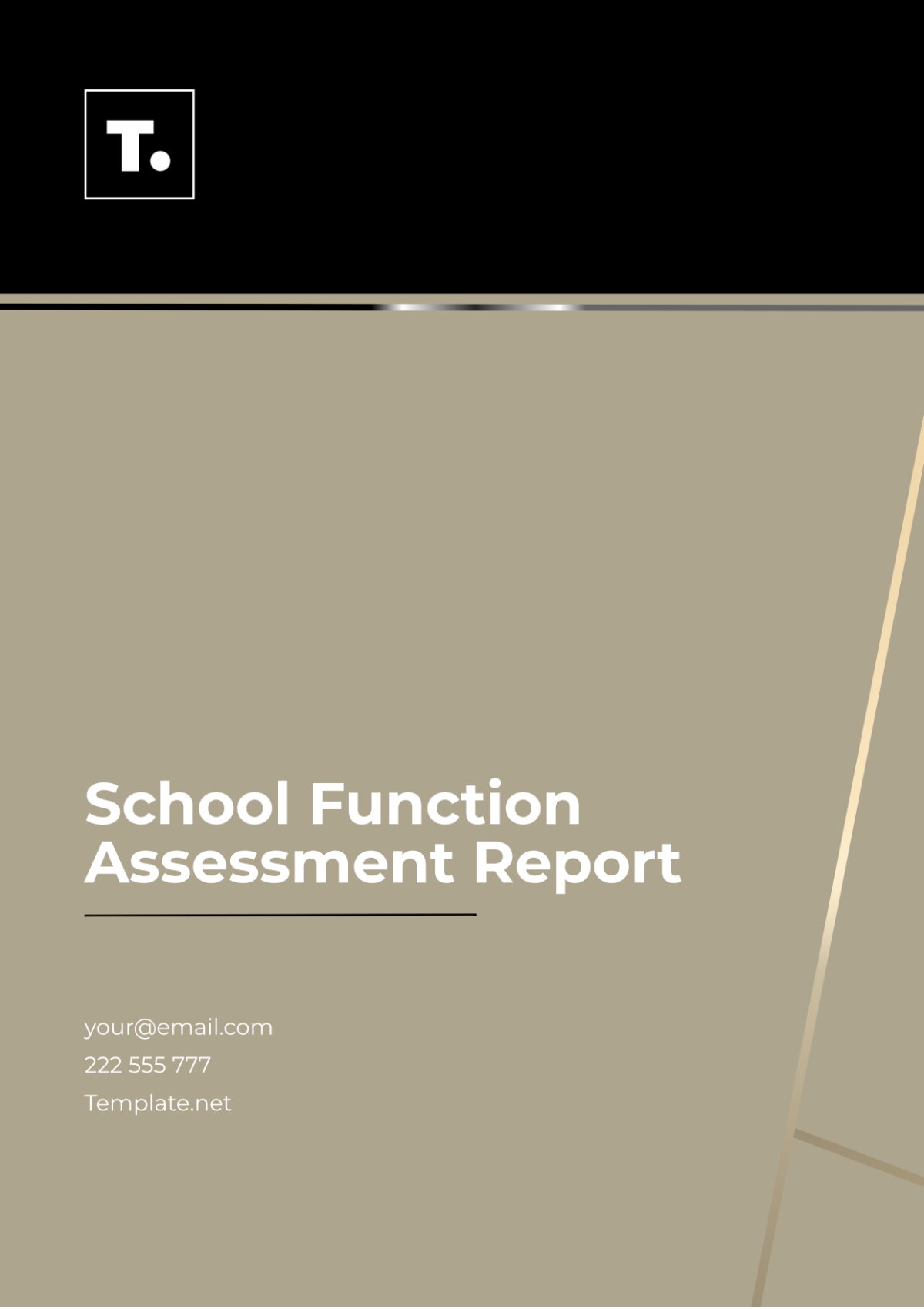
I. Introduction
The [SCHOOL FUNCTION ASSESSMENT REPORT] is designed to evaluate the effectiveness and efficiency of various functions within [YOUR SCHOOL NAME]. This assessment aims to provide valuable insights into areas of improvement and opportunities for optimization. By analyzing different aspects of school functions, we can identify strengths to celebrate and weaknesses to address, ultimately enhancing the overall performance and experience for students, faculty, and staff.
Purpose of the Assessment: The primary objective of this assessment is to evaluate the efficiency and effectiveness of various functions within [YOUR SCHOOL NAME], including but not limited to administrative processes, academic programs, extracurricular activities, and facilities management.
Scope of the Assessment: The assessment will cover key areas such as curriculum development, teaching methodologies, student support services, financial management, and overall organizational effectiveness.
II. Methodology
The methodology section outlines the approach and tools utilized to conduct the [SCHOOL FUNCTION ASSESSMENT REPORT]. It provides transparency into the assessment process, ensuring reliability and validity of the findings. The assessment methodology includes the following steps:
Data Collection: Utilizing a combination of quantitative and qualitative methods, data will be collected from various sources, including surveys, interviews, focus groups, and document reviews. This multi-faceted approach ensures a comprehensive understanding of school functions from diverse perspectives.
Data Analysis: Collected data will be analyzed using both descriptive and inferential statistical techniques to identify patterns, trends, and correlations. Qualitative data will be subjected to thematic analysis to extract meaningful insights and themes.
Stakeholder Engagement: Throughout the assessment process, active engagement with stakeholders, including students, parents, teachers, administrators, and community members, will be prioritized to ensure their perspectives are incorporated into the assessment findings.
Report Compilation: Findings will be synthesized into a comprehensive report, including an executive summary, key findings, recommendations, and action plans. The report will be structured to facilitate easy navigation and understanding for all stakeholders.
III. Key Findings
The [SCHOOL FUNCTION ASSESSMENT REPORT] presents key findings derived from the analysis of data collected during the assessment process. These findings offer valuable insights into the current state of school functions, highlighting areas of strength and areas for improvement. Key findings include:
Academic Performance: Despite challenges, academic performance remains strong across various grade levels, with consistent achievement in standardized tests and external assessments.
Parental Engagement: There is a notable lack of parental engagement in school activities and decision-making processes, indicating a need for targeted initiatives to foster stronger partnerships between the school and parents.
Infrastructure: The school's infrastructure is in need of significant upgrades, particularly in terms of technology integration, classroom facilities, and recreational spaces. Investment in infrastructure improvement is critical to support modern teaching and learning practices.
IV. Recommendations
Based on the key findings outlined in the [SCHOOL FUNCTION ASSESSMENT REPORT], a series of recommendations have been formulated to address identified areas for improvement and capitalize on strengths. These recommendations are aimed at enhancing the overall effectiveness and efficiency of school functions, fostering a conducive environment for academic excellence and holistic development. Key recommendations include:
Enhanced Parental Involvement: Implement strategies to increase parental involvement in school activities, such as regular communication, parent workshops, and involvement in decision-making processes.
Infrastructure Upgrades: Develop a comprehensive plan for infrastructure upgrades, prioritizing investments in technology infrastructure, classroom renovations, and recreational facilities to support 21st-century teaching and learning practices.
Professional Development: Provide ongoing professional development opportunities for teachers and staff to enhance their skills and competencies in areas such as technology integration, differentiated instruction, and cultural responsiveness.
V. Conclusion
In conclusion, the [SCHOOL FUNCTION ASSESSMENT REPORT] serves as a valuable tool for evaluating and improving various functions within [YOUR SCHOOL NAME]. By leveraging the findings and recommendations outlined in this report, the school can take proactive steps towards enhancing academic excellence, fostering a supportive learning environment, and promoting overall organizational effectiveness. Continuous assessment and improvement are essential to ensuring that [YOUR SCHOOL NAME] remains at the forefront of educational innovation and excellence.
Prepared By | School | Date Prepared |
|---|---|---|
[Your Name] | [Your School Name] | [Current Date] |
- 100% Customizable, free editor
- Access 1 Million+ Templates, photo’s & graphics
- Download or share as a template
- Click and replace photos, graphics, text, backgrounds
- Resize, crop, AI write & more
- Access advanced editor
Unlock the power of insightful school event evaluation with the School Function Assessment Report Template from Template.net. Effortlessly editable and customizable, tailor each detail to reflect your institution's unique needs. Seamlessly integrated with our Ai Editor Tool, streamline the assessment process and elevate your event planning prowess. Start optimizing your school functions today!
